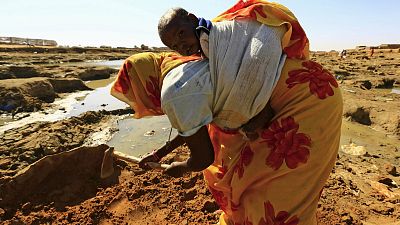South Sudan
As the viscous cycle of conflict continues to thrive in South Sudan, the hunger gap is also continuing to widen at an alarming rate.
One of the glaring results of the conflict which erupted in December 2013, is no food on the tables of the already burdened South Sudanese.
4.6 million people in that country are food insecure. This is according to aid agencies and government.
This year alone, the United Nations World Food Programme (WFP) extended its assistance to 1.4 million people. The organizations has also been rationing food to a pre-existing caseload of more than 200,000 refugees in camps in Unity and Upper Nile states through a Protracted Relief and Recovery Operation (PRRO)
Cultivated arable land stands at just four percent. For a country whose 90 percent of the population depends on crop farming, the situation is beyond dire.
Sources of this problem
The conflict often forces commercial farmers from fields during key times in the planting season. Declining productivity due to poor farming methods, high marketing margins caused by poor infrastructure and proliferation of taxes also throw a spanner into the works.
According to the African Development Bank (AFDB), at the domestic level, South Sudan has the potential to be both self-sufficient and to become a major exporter of cereals. The organisation says the main constraints to realizing this potential are largely internal and therefore, within the control of the policy makers. It has suggested that marginal use of available arable land, low and he removal of these constraints is not only feasible and within reach but will be transformative and beneficial to the country.
Since the time citizens started feeling the effects of the conflict, aid organizations ramped up efforts to get get much needed food, seeds and the tools for growing food across the country.
The UN Food and Agricultural Organisation (FAO) has called for accurate and timely food security information and analysis that will assist in informing decision-making and focusing assistance in communities that need it most.














01:10
Young South Sudanese player selected for NBA basketball team
01:41
UN warns of looming famine in Sudan, Gaza and 3 other global hunger hotspots
01:58
South Sudan celebrates International Day of United Nations Peacekeepers
Go to video
UN Peacekeepers Day: Children steal spotlight with powerful call for peace
Go to video
Conflict and disease put a strain on South Sudan's fragile healthcare system
01:03
Final destination for deportees flown out of the United States remains unknown